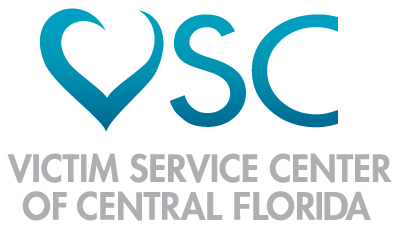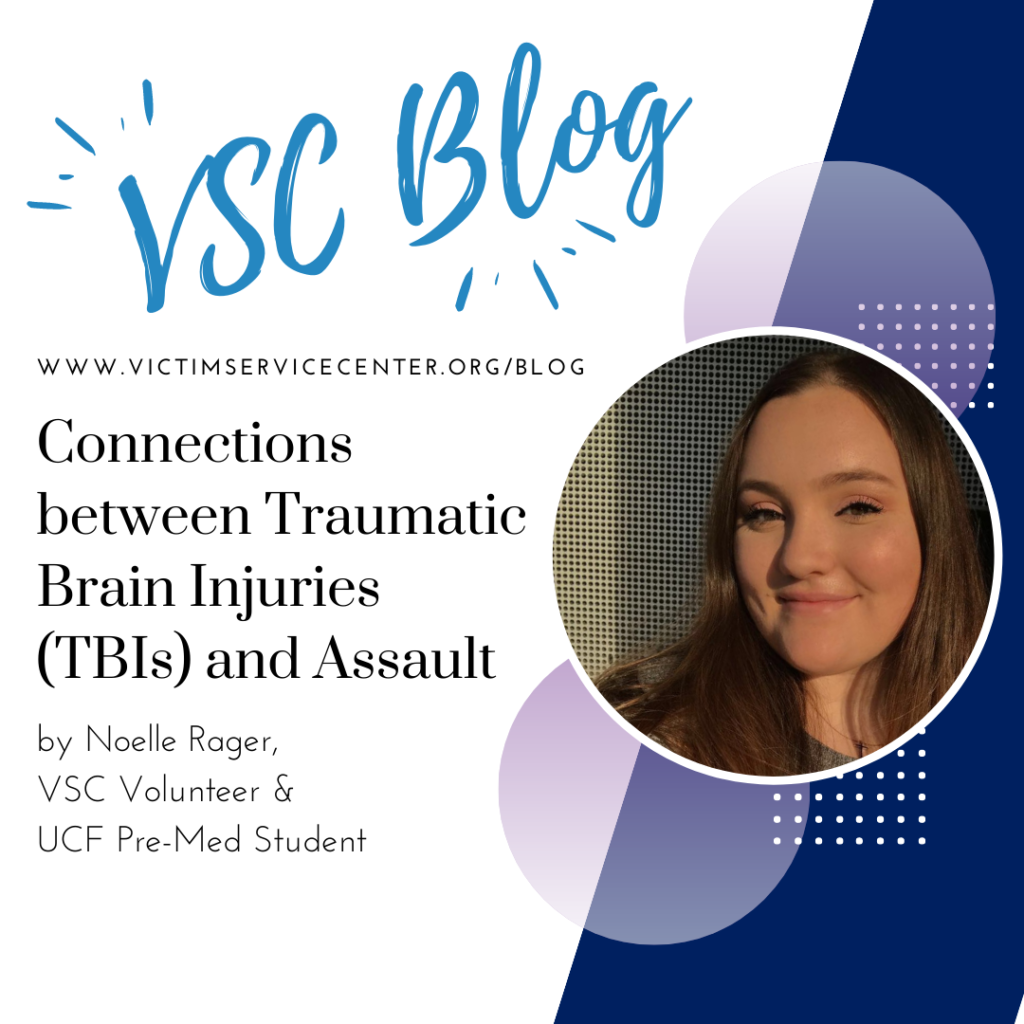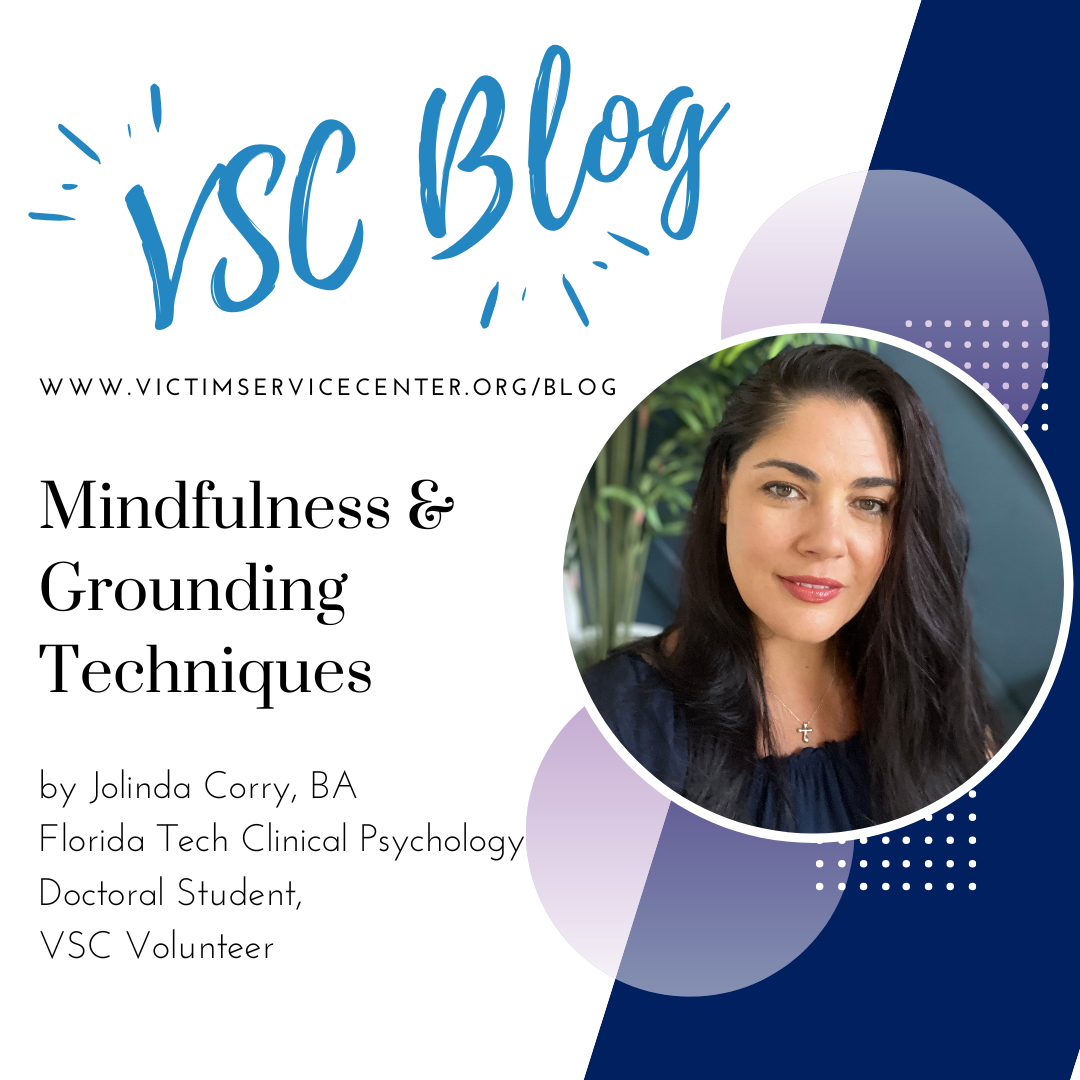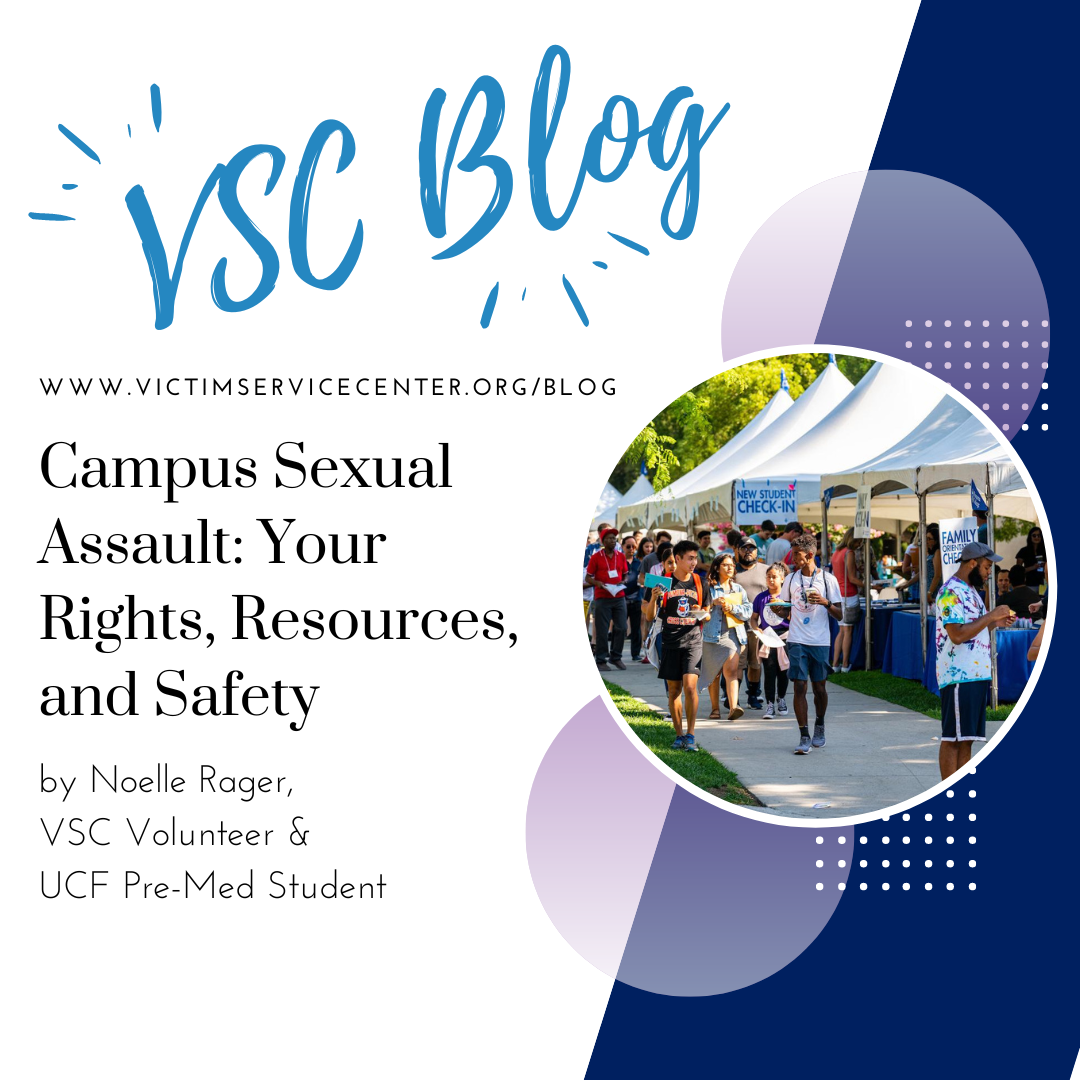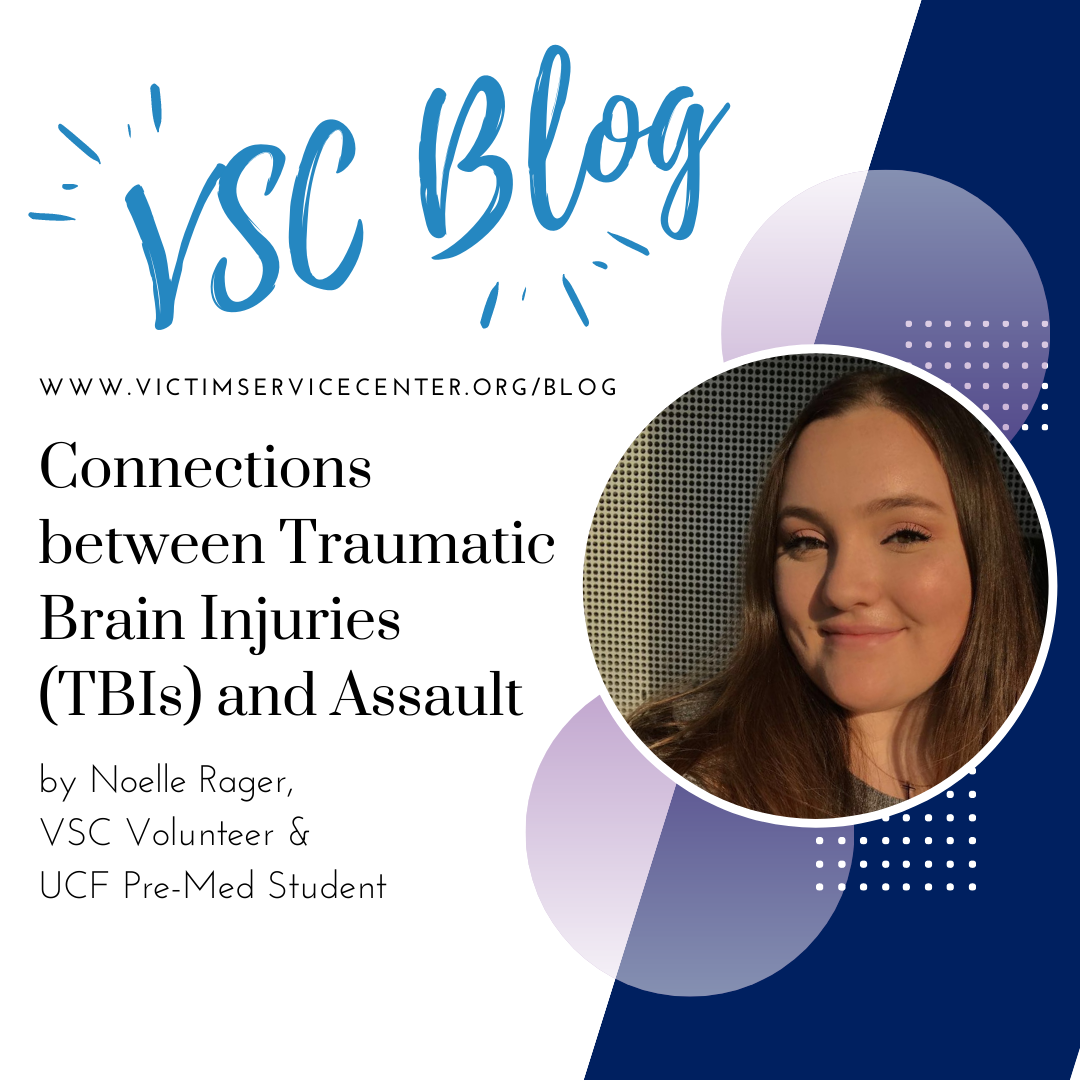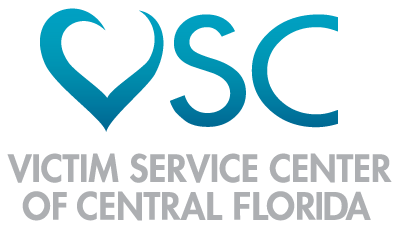By Noelle Rager, VSC Volunteer & UCF Pre-Med Student
Trigger Warning: This blog post discusses sensitive topics such as sexual assault. It’s important to take care of yourself while reading. Some suggestions are reading while you’re in a healthy headspace or knowing who you can reach out to if you become upset. Our 24/7 helpline for crisis calls based out of Central Florida is (407) 500-HEAL. To get additional support and/or learn about your local resources, the National Hotline can be contacted at 1-800-656-4673. There is always someone ready to help.
What is a Traumatic Brain Injury (TBI)?
A TBI is an injury to the brain due to a sudden external trauma. This may seem like a very broad definition, but that’s because TBIs can be caused by a wide variety of events. Some common causes are falls, car accidents, sports injuries, and assault. The severity of TBIs can range from a mild concussion that resolves itself within a couple of weeks, to severe injuries that result in long-term complications and disabilities.
What are the Symptoms of TBIs?
There is a wide range of symptoms associated with TBIs that depend on the individual and the severity of the injury. Symptoms may be present immediately after the trauma or may begin to appear days or weeks afterward. Some common physical and psychological symptoms are:
Physical symptoms:
- headache with or without light or sound sensitivity
- nausea and dizziness
- fatigue
Psychological/cognitive symptoms:
- confusion
- memory or concentration problems
- sleeping more or less than usual
- mood swings
- feelings of depression or anxiety
Medical Evaluation, Classification, and Long-term Impact of TBIs:
To determine the initial severity, the majority of TBIs are evaluated with the Glasgow Coma Scale (GCS) and classified as mild, moderate, or severe. Additionally, the Glasgow Outcome Scale (GOS) is often used to estimate the expected degree of recovery. The predicted outcomes are based on the initial classification. Mild indicates that symptoms will gradually improve in most cases, moderate indicates a positive recovery in 60% of patients, and a severe classification indicates an expected positive outcome of 25%-33% (Agarwal et al., 2020).
Throughout this post, these terms will be referenced in relation to certain statistics as they are determined by medical diagnoses. As a quick disclaimer, there are limitations to the GCS/GOS so in no way does it mean that a mild TBI is an “easy” diagnosis. Classification in this way can often hinder treatment because the terms mild and moderate can lead to a withdrawal of care too early. Conversely, a patient labeled severe may have a more favorable outcome than previously expected (National Academies of Sciences, Engineering, and Medicine, 2022). Although these assessments have some limitations, they are widely regarded as reliable and are considered an integral part of the physical evaluation after a brain injury.
In addition to the immediate impact, TBIs often result in lifelong health problems and disabilities. According to a study that collected information from participants 5 years after a TBI, 57% were moderately or severely disabled (Center for Disease Control and Prevention). In the US, this equates to over 5 million citizens, which is around 2% of the population (Brain Injury Association of America, 2022).
Groups at Greater Risk of Negative Outcomes:
The likelihood of experiencing long-term disabilities from a TBI depends on several factors such as the severity of the injury, socioeconomic status, and personal circumstances. Certain groups that are at a greater risk of long-term negative impacts include the following (Center for Disease Control and Prevention, 2021):
- victims of intimate partner violence
- racial and ethnic minorities
- those in correctional facilities
- people who experience homelessness
- service members and veterans
- people in rural areas
- people in a lower socioeconomic status or do not have access to health insurance
The Link Between TBI and Assault:
The third most common cause of TBIs, which makes up about 10% of all cases, is assault (Bown, 2019). The correlation between assault and TBIs is a severely under-researched topic, and the research that does exist is limited since many victims are not examined by a health care professional. However, an older study conducted by Dr. Valera, a researcher at Harvard Medical School, focused specifically on female victims of intimate partner violence. This study found that of the 99 participants, 74% sustained at least 1 TBI and 51% suffered multiple TBIs (2003). While this gives us significant statistics, it’s important to remember that TBIs can also occur from an assault outside of intimate partner violence. Additionally, Dr. Valera’s study focused solely on female victims, but male and nonbinary victims can experience TBIs as well.
Overview of Disabilities and Sexual Violence:
Disability is a general term that encompasses a wide range of impairments, including TBIs. While there isn’t much research on this specific topic, it was recorded by the Office for Victims of Crime that people with disabilities are at least twice as likely to be victimized (2018). A disability is defined as a physical or mental impairment that significantly limits activities of daily life. Although not a comprehensive list, a few of the categories are mental health disorders, intellectual disabilities, developmental disabilities, and sensory disabilities. People with impairments are at a higher risk of experiencing sexual violence which can be due in part to the following circumstances:
- Dependence on a caregiver may lead to compliance because the victim can’t afford to lose the caregiver’s support.
- People in assisted living facilities are in constant contact with a large number of the staff and may not be aware of how to report abuse.
- There may be limited access to resources when there is a caregiver present or in a group home.
- Individuals with cognitive impairments may have difficulty recognizing inappropriate behavior or may be unaware of their right to report.
TBIs can cause cognitive impairment that affects memory, perception of risky situations, and disabilities that require a caregiver. The reliance on a caregiver puts those with TBIs at a higher risk of assault and mistreatment (CDC, 2007).
If you or a loved one has a disability and has experienced sexual violence or abuse, there are resources available for support:
- Call 911 or contact your local police station to make an official report of abuse
- Call 800.656.HOPE (4673) or click here to speak to a National Sexual Assault Hotline Advocate
- Visit the Victim Service Center website for more information on crime victim services
How to Support Someone Who Has a TBI:
TBIs can be life-altering for the victim and their loved ones as well. It’s common for family and friends to feel helpless because it’s not always clear what you can do to help. Here are some recommendations when caring for a loved one with a TBI:
- Maintain a calm, patient, and understanding attitude
TBIs are incredibly overwhelming and can be disorienting when trying to readapt to normal, daily life. It’s common for someone with a TBI to have many negative emotions and feel distressed when having difficulty completing simple tasks. It’s important to stay calm and patient to help them feel supported.
- Educate yourself on the recovery from TBIs and expect inconsistency
Recovery isn’t always linear, and it’s normal for some days to be better or worse than others. It’s common for someone with a TBI to experience mood swings and be hostile towards you which can be difficult to understand. A lack of control over the situation may cause their anger to be displaced onto you in an effort to cope with the drastic changes that come along with TBIs.Reading into what TBIs do to the brain and understanding the ‘why’ behind their actions and words can help you appreciate the extent of what they’re going through.
- Help break down their tasks to promote simplicity
Previously simple tasks become extremely overwhelming after a TBI. A great way to help them feel confident and supported is to break their tasks into smaller steps. You can also do some of the bigger things for them that they may have difficulty with at first, and slowly reintegrate them back into their routine in small amounts.
- Monitor overstimulation and promote familiarity
Establishing a daily routine to promote familiarity in such a disorienting time can help lessen some of the distress they’re experiencing. Coping with the mental and emotional side effects along with the physical impact of a TBI can very quickly lead to overstimulation. Avoid conversations that are full of new information or sarcastic jokes. These situations can be hard for them to follow and may only lead to more frustration.
These are just a few common tips to keep in mind, but if you would like a more in-depth guide on how to care for a loved one with a TBI, please check out the following resources:
- Brain Injury Association of America Guide for Caregivers
- Mayo Clinic Patient Education “How to Help Someone Who Has a Brain Injury”
- Brain Injury Association Caregiver Information Center
Caregiver Support:
Helping someone recover from a TBI can impact caregivers as well and it’s normal to feel scared and overwhelmed. Caregivers have a heavy, time-consuming responsibility and it’s common to prioritize the well-being of others over your own. Caregiver burnout is the emotional and physical exhaustion that stems from neglecting your needs while taking care of someone else. Remember, you can’t take care of others unless you take care of yourself first. To learn more about how to support yourself and avoid burnout, check out the caregiver support resources from Mayo Clinic and BrainLine.
Final Notes:
If you believe you or a loved one are suffering from a TBI, it’s important to get medical care as soon as possible. While medical care is imperative in treating traumatic brain injuries, it’s important to seek emotional support as well. Please feel free to use Victim Service Center’s free counseling or call the 24-hour helpline at 407-500-HEAL (4325) for support during a crisis.
References:
- 2018 NCVRW Resource Guide: Crimes Against People with Disabilities Fact … (n.d.). https://ovc.ojp.gov/sites/g/files/xyckuh226/files/ncvrw2018/info_flyers/fact_sheets/2018NCVRW_VictimsWithDisabilities_508_QC.pdf
- Agarwal, N., Thakker, R., & Than, K. (2020, February 3). Traumatic Brain Injury. American Association of Neurological Surgeons. Retrieved September 22, 2022, from https://www.aans.org/Patients/Neurosurgical-Conditions-and-Treatments/Traumatic-Brain-Injury
- Bown D, Belli A, Qureshi K, Davies D, Toman E, Upthegrove R. Post-traumatic stress disorder and self-reported outcomes after traumatic brain injury in victims of assault. PLoS One. 2019 Feb 7;14(2):e0211684. DOI: 10.1371/journal.pone.0211684. PMID: 30730924; PMCID: PMC6366871.
- Brain Injury Awareness Month. Brain Injury Association of America. (2022, April 5). Retrieved September 22, 2022, from https://www.biausa.org/public-affairs/public-awareness/brain-injury-awareness
- Centers for Disease Control and Prevention. (2021, May 12). Health Disparities and TBI. Centers for Disease Control and Prevention. Retrieved September 22, 2022, from https://www.cdc.gov/traumaticbraininjury/health-disparities-tbi.html
- Center for Disease Control and Prevention. Moderate to Severe Traumatic Brain Injury Is a Lifelong Condition. https://www.cdc.gov/traumaticbraininjury/pdf/moderate_to_severe_tbi_lifelong-a.pdf.
- Centers for Disease Control and Prevention. (2007). Victimization of persons with traumatic brain injury or other disabilities: A fact sheet for professionals. Centers for Disease Control and Prevention. Retrieved from https://stacks.cdc.gov/view/cdc/11667
- Traumatic Brain Injury Categories Should Be Updated and Personalized to Better Guide Patient Care, Says New Report. National Academies of Sciences, Engineering, and Medicine. (2022, February 1). Retrieved September 22, 2022, from https://www.nationalacademies.org/news/2022/02/traumatic-brain-injury-categories-should-be-updated-and-personalized-to-better-guide-patient-care-says-new-report
- Valera EM, Berenbaum H. Brain injury in battered women. J Consult Clin Psychol. 2003 Aug;71(4):797-804. DOI: 10.1037/0022-006x.71.4.797. PMID: 12924684.
